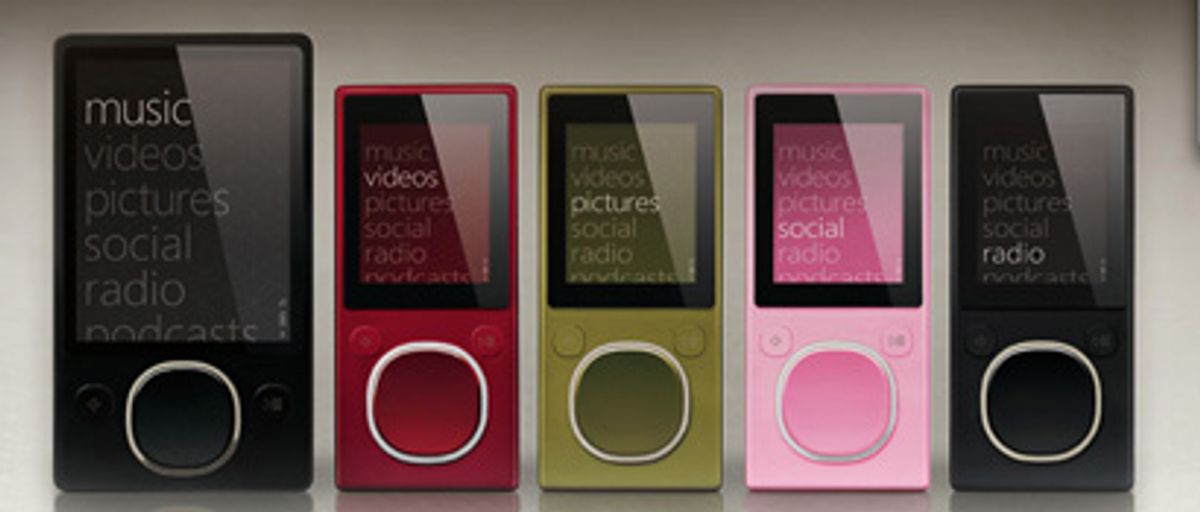
Photo: Zune.net
One thing you've got to admit about Microsoft: They treat failure as an opportunity. Other firms -- lesser firms -- would have run away red-faced and sniveling after walking into a party and finding the whole crowd thought it was a huge loser. Not Microsoft. When folks call Microsoft a loser it goes home and studies videos of the cool kids, and it copies their moves. Then Microsoft marches right back into that party. And it'll do so again and again -- remember Windows, remember Internet Explorer? -- until, eventually, everyone just gives in. So -- is that the story with Zune?
Last year the world greeted Microsoft's grand entrance into the digital music player market with a collective meh. The thing had odd colors -- brown? -- a nonsensical marketing slogan -- "Welcome to the Social" (what, it comes with ice cream?) -- and its main feature, wireless music-sharing between devices, was too clunky to bother with. On Tuesday Microsoft came back to the party with a new lineup of Zunes.
The original Zune contained a 30 GB hard drive, came in black, white and brown, and sold for $249. The new lineup does away with that model entirely. Instead, there's now an 80 GB hard-drive player, and two versions of a smaller, thinner, lighter flash-memory player. The 80 GB player comes in black only and sells for $250. The 8 GB flash player sells for $200, and the 4 GB player is $150; these come in black, pink, green and red. No more brown.
In addition to the physical changes, the new Zunes have been equipped with new software (the software can also be installed on all first-generation Zunes), and Bill Gates tells the New York Times that the software's where it's at.
Microsoft has tweaked the Zune-to-Zune sharing capabilities of the player. Used to be that songs you got from another Zune expired after three plays or three days, whichever came first. You also couldn't pass it to a third Zune user. (The rules were negotiated to please the music industry -- and Apple fans, you're only allowed to blame MS for going along with them if you also recognize that Apple tolerates all kinds of DRM restrictions, and, of course, will also break your iPhone in order to please a telephone company that wants to help the NSA and Hollywood spy on you.)
Now there's no three-day restriction, and you can pass songs you get from one Zuner to another Zuner. But you can still play each Wi-Fi-shared song only three times.
One more thing on restrictions: Microsoft says it is removing digital rights management restrictions from songs in the Zune store; a million tracks will be available to be played on devices other than Zune.
Is all this enough? Probably not. The iPod's still a juggernaut, of course, and it may be too late. But you can't blame MS for trying.



Shares